Wonderful introduction:
A person's happiness may be false, and a group of people's happiness cannot tell whether it is true or false. They squandered their youth and wished they could burn it all, and that posture was like a carnival before the end of the world.
Hello everyone, today XM Foreign Exchange will bring you "[XM Official Website]: Investors sell US assets, and short-term trend analysis of spot gold, silver, crude oil and foreign exchange on May 20." Hope it will be helpful to you! The original content is as follows:
The three major futures indexes all fell, Dow futures fell 0.16%, S&P 500 futures fell 0.33%, and Nasdaq futures fell 0.39%. The German DAX index rose 0.39%, the French CAC40 index rose 0.08%, and the UK FTSE 100 index rose 0.37%.
⑴ Quilter's quarterly survey of 21 fund managers showed that as investors' confidence in US assets declines, European assets are expected to benefit. ⑵53% of respondents expect the worst return on assets in the United States, while 44% of respondents believe that the best return on assets in Europe. ⑶ Tariff uncertainty has caused investors to lower expectations for U.S. stock market returns and economic growth. ⑷One-third of respondents expect the U.S. real GDP growth rate will be below 1% in 2025, showing concerns about the U.S. economic recession. ⑸ Quilter investment strategist Lindsay James said that under the current cautious market expectations, Europe is expected to be a winner.
⑴ Total Norwegian oil and gas production exceeded the official forecast by 1.2%, the Norwegian Maritime Authority (NOD) said on Tuesday. ⑵The total output of oil, condensate, natural gas liquid and natural gas in April was 663,000 cubic meters per day, equivalent to 4.17 million barrels of oil equivalent, a decrease of 2.4% from the same period last year. ⑶Norway is Europe's largest natural gas supplier and the main stoneOil-producing countries, their output fluctuates month by month due to maintenance and other shutdowns in more than 90 offshore oil fields.
⑴ Ulrich Leuchtmann, head of foreign exchange and commodity research at Deutsche Bank, pointed out that the Federal Reserve has been criticized by the "Make America Great Again" (MAGA) camp for "spending too much money", including too many employees and too expensive new office buildings. ⑵ These criticisms are considered a potential threat to the independence of the Federal Reserve, and some believe that the Federal Reserve should accept political control. ⑶Leuchtmann believes that central banks' independence is crucial because they can withstand the temptation of excessive spending, which may lead to serious macroeconomic consequences on the finance minister. ⑷ The Fed has announced it will cut 10% of its staff to show a response to political pressure, but Leuchtmann believes that this is worrying. ⑸ In the worst case, the Fed may actually be unable to act effectively due to a sharp reduction in size, similar to the case of the United States Agency for International Development (USAID), which is also a means to weaken the independence of the central bank.
⑴ The unpredictability of US tariff policies and potential global trade conflicts make it difficult for central banks to provide a reliable economic outlook. ⑵ The Bank of Canada has released two hypothetical scenarios: under the optimistic scenario, the gradual cancellation of most tariffs through negotiations, Canada and global economic growth will temporarily slow down, inflation may drop to 1.5%, and return to the target level of 2% after one year. ⑶The more serious scenario is that global trade conflicts are long-term, Canada may fall into a deep recession, and inflation may exceed 3% in mid-2026, and then gradually return to the target level. ⑷ In its annual financial stability report, the central bank pointed out that although the current financial system is still resilient, the continued trade tensions may lead to an increase in financial vulnerability. ⑸ The United States imposes tariffs on Canadian goods and Canada's retaliatory measures are seen as potential threats. Long-term trade conflicts may make it more difficult for families and businesses to manage their debts, which in turn affects banks and financial institutions. ⑹The Bank of Canada said that uncertainty in US trade policy may cause market volatility and liquidity tension in the short term. In the long run, global trade conflicts may have serious consequences for the economy.
⑴ It is difficult to find a strong argument to support the US dollar at present, and the "double deficit" issue may once again become a major negative factor for the US dollar, pointed out Antje Praefcke, a foreign exchange analyst at Deutsche Bank, pointed out. ⑵ After the bursting of the Internet bubble in the early 2000s, the US dollar faced long-term pressure due to the huge US budget deficit and trade deficit, and the market held a critical view of the US dollar. ⑶ At present, it is difficult for the US trade deficit to improve significantly, because most of the tariffs announced since April 2 have been suspended, the US imports have not decreased, and the US still consumes a large amount of foreign goods. ⑷At the same time, the problem of the US budget deficit is becoming increasingly prominent, tariff revenue cannot fill the budget gap, budget reduction is difficult, and the 10-year US Treasury yield has risen to 4.5%, interest expenditure has increased, and budget balance has become more difficult. ⑸ The market may re-examine the sustainability of US debt. If the "double deficit" problem is highlighted again, the US dollar may face the risk of long-term weakness.
⑴ UOB economists Julia Goh and Loke SiewTing pointed out in the report that as US tariff negotiations are still unresolved, Malaysia's trade prospects may remain challenging and face downside risks. ⑵ They mentioned that after the U.S. suspension of tariffs ended in July, the situation of pre-shipment may decrease, which will have an impact on Malaysia's exports. ⑶Malaysia's electrical and electronic products exports account for 40% of total exports and 23% of exports to the United States, so it is vulnerable to potential new tariffs. ⑷UoCN warned that if tariffs are evaded through re-export trade, Malaysia may face more trade transfer issues and stricter scrutiny from the US. ⑸ The bank believes that diversification and policy support are key buffers and maintains its forecast of 3.8% export growth in 2025, down from 4.5% in 2024.
The German Federal Bank (BUBA) shows that Germany successfully issued 30-year green treasury bonds on May 20, 2025.
⑴ The scale of this issuance is 920 million euros and the face interest rate is 1.80%. ⑵ The average rate of return is 3.01%, higher than the 2.73% of the last issuance. ⑶ The bid multiple is 1.8, lower than the previous 2.4, indicating that market demand has changed.
⑴Japan's 20-year Treasury bond auction demand hit the lowest level since 2012, with the bid multiple being only 2.5 times, indicating weak market demand. ⑵ The 20-year Treasury bond yield soared 12 basis points to 2.54%, the highest level since 2000. ⑶ At the same time, Japan's 30-year Treasury bond yield hit its highest point since 1999 3.15%, with the latest 3.095%, up 12 basis points in the day.
Euro/USD: As of 20:20 Beijing time, the euro/USD fell and is now at 1.1237, a drop of 0.04%. Before the New York Stock Exchange, the (Euro-USD) price reduced its early gains in recent intraday trading, with major resistance stabilizing at 1.1250, especially after reaching overbought levels, which slowed down the bullish track, with bullish trends dominating on a short-term basis, while a slash appeared.
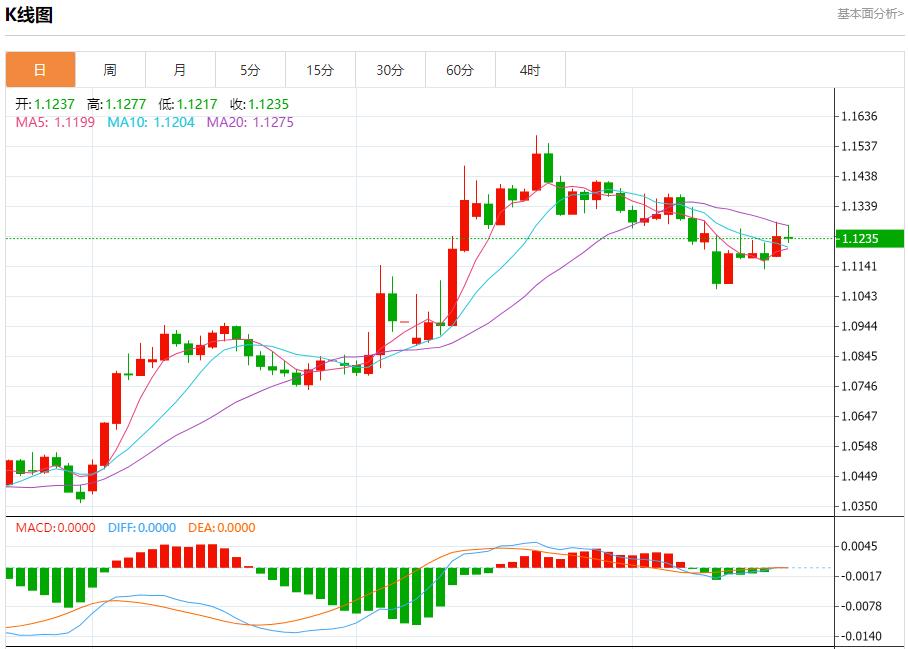
GBP/USD: As of 20:20 Beijing time, GBP/USD has fallen and is now at 1.3349, a drop of 0.09%. Before the New York Stock Exchange, (GBPUSD) fell on the last trading day, leaning on the support level of 1.3340, trying to collect gains from previous gains and trying to unload some overbought conditions on the (RSI), especially when negative signals appear there, collecting positive forces that may help it recover and rise again, and trading along a slashed line dominated by the main bullish trend in the short term, as its trading is above the EMA50, positive pressure continues.
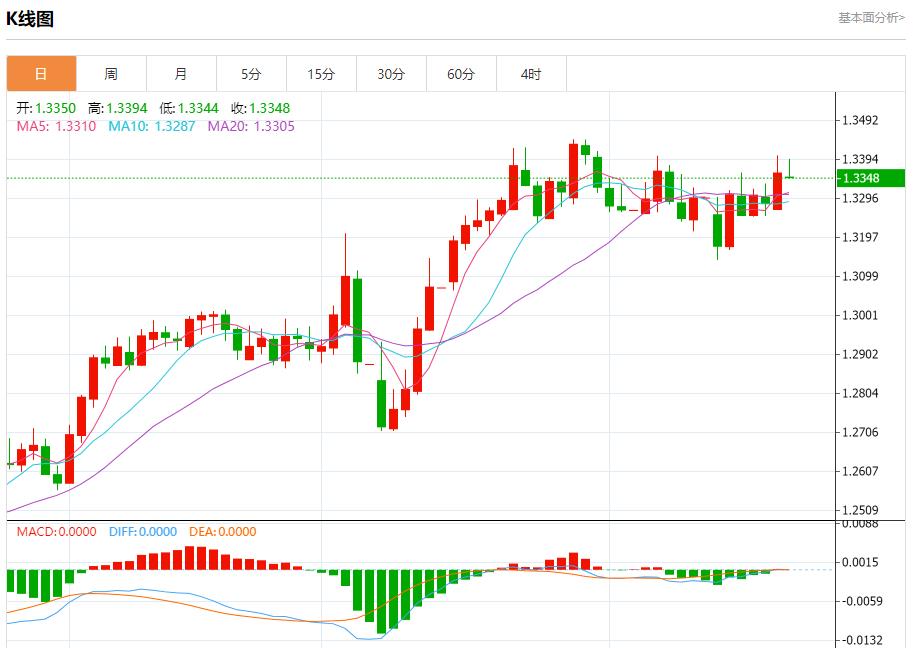
Spot gold: As of 20:20 Beijing time, spot gold rose, now at 3234.78, an increase of 0.15%. Before New York, the (gold) price jumped in recent intraday trading, starting with testing our target around $3200, gaining positive momentum due to the stability of this key support and attacking a smaller bear correction trend line on a short-term basis, touching the EMA50 resistance, which strengthens the dynamic resistance of the region to more upside movements.
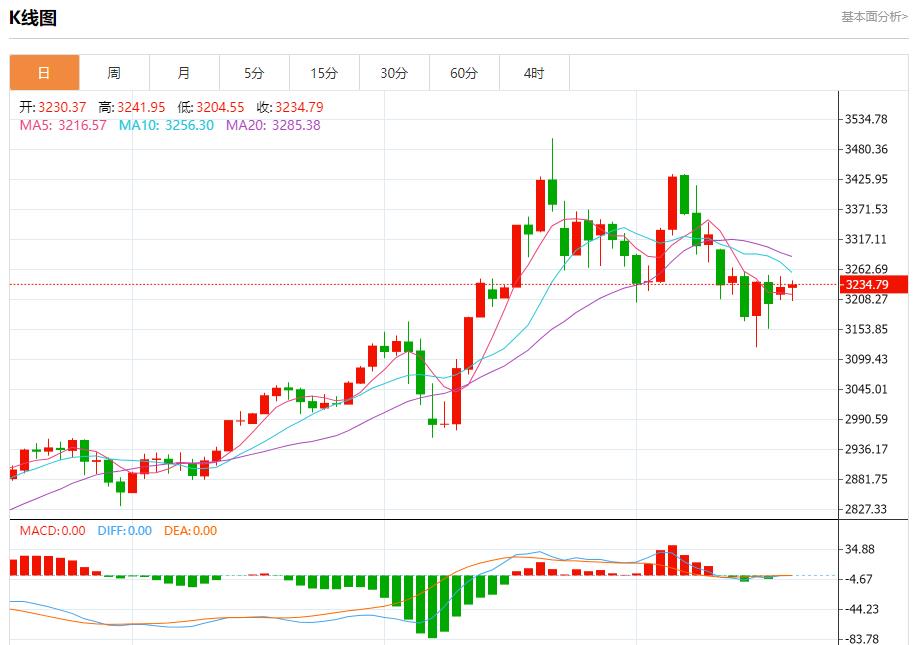
Spot silver: As of 20:20 Beijing time, spot silver rose, now at 32.452, an increase of 0.37%. Before the New York Stock Exchange, the (silver) price fluctuated in recent day trading, and there were positive signals on (RSI), which provided some support for the price, but the price remained stable below the EMA50 and was in a small bear market in the short term.
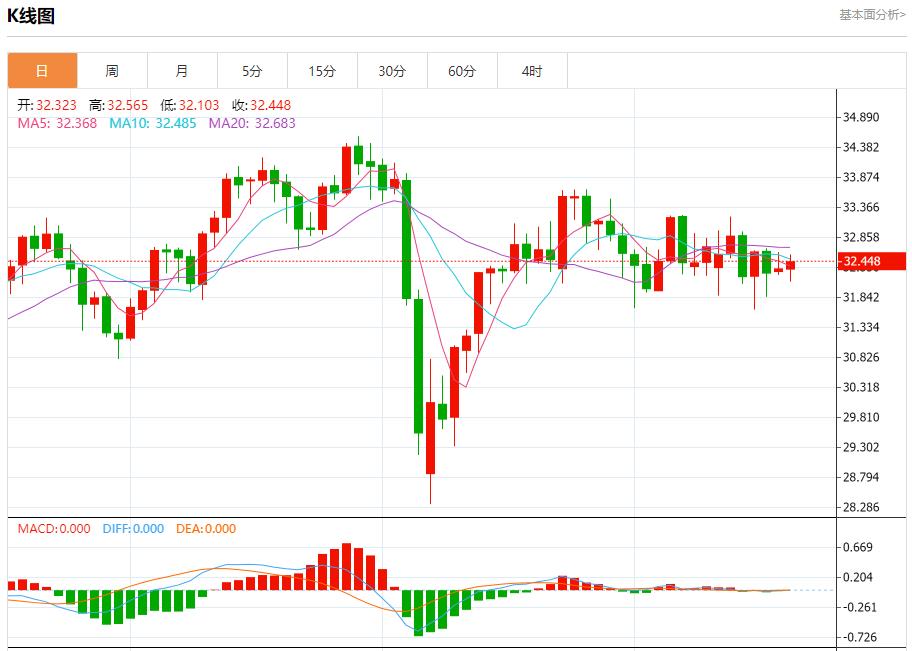
Crude oil market: As of 20:20 Beijing time, U.S. oil fell, now at 61.910, a drop of 0.34%. Before the New York Stock Exchange, the (crude oil) price fluctuated at the intraday level, with bullish correction trends dominant on a short-term basis and trading along a slash line, where positive pressure continued due to its trading above the EMA50, and on the other hand, we noticed the emergence of negative signals on (RSI).
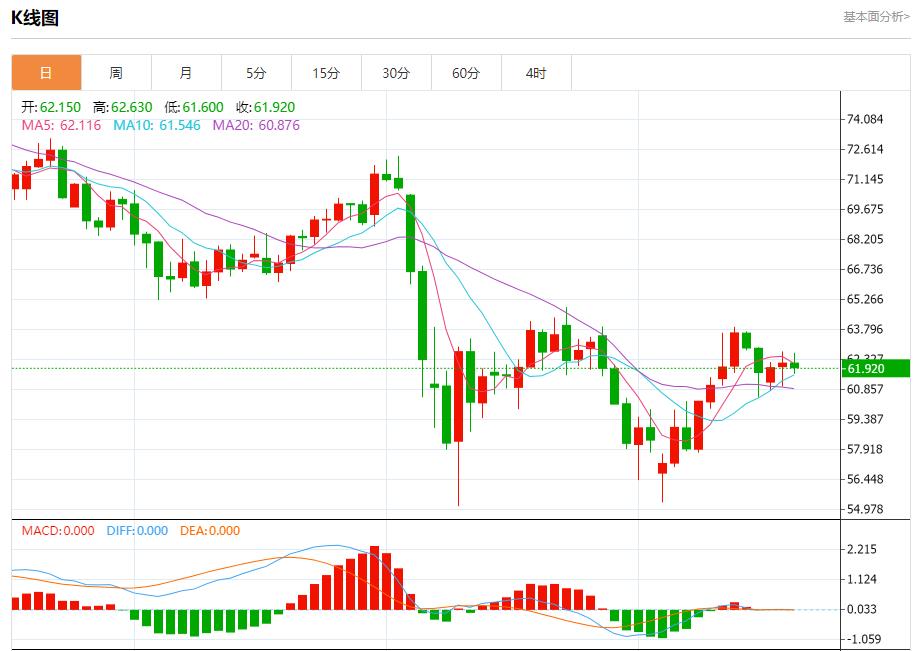
Mitsubishi UFL analyst Derek Halpenny said in a report that if the UK's inflation data released on Wednesday exceeded expectations, the pound may rise briefly. A survey of analysts showed that inflation is expected to accelerate to 3.3% year-on-year from 2.6% in March.In April this year, with the increase in other taxes, the increase in employer national insurance contributions also began to take effect. Energy prices and other utilities expenses have also risen. Halpenny said people might breathe a sigh of relief if inflation meets general expectations. More than expected inflation could boost the pound, though negative growth could mean that the impact could fade rapidly.
Citi said the RBA's attitude is more moderate than expected. The downside risks faced by economic growth (especially household consumption) exceeded expectations, and the statements and press conferences were moderate. Given that the RBA has considered cutting interest rates by 50 basis points, the bank is currently expected to cut interest rates in July. The final interest rate is expected to remain at 3.1% this year, with interest rates set to be cut in August, September and November.
The above content is all about "[XM official website]: Investors sell US assets, and short-term trend analysis of spot gold, silver, crude oil, and foreign exchange on May 20". It was carefully compiled and edited by the XM Forex editor. I hope it will be helpful to your trading! Thanks for the support!
After doing something, there will always be experience and lessons. In order to facilitate future work, we must analyze, study, summarize and concentrate the experience and lessons of previous work, and raise it to the theoretical level to understand it.